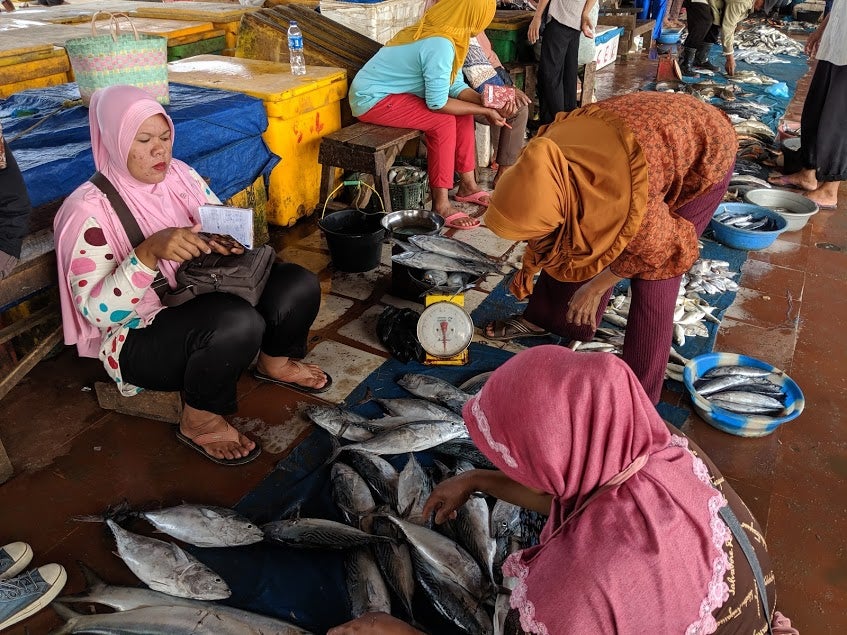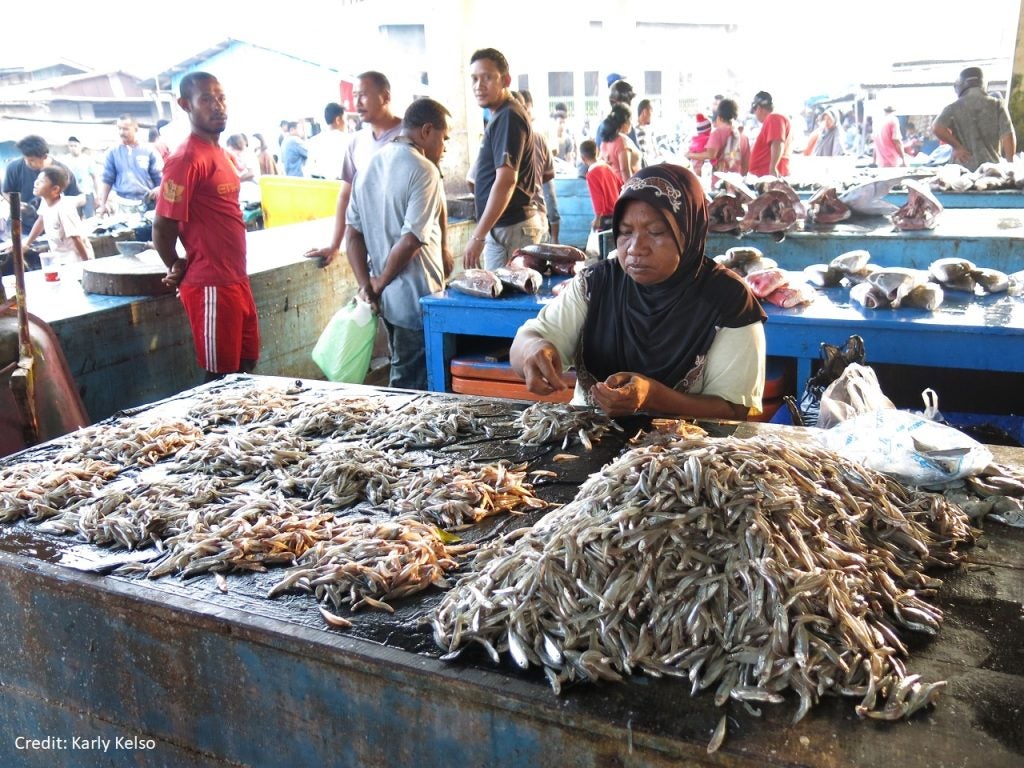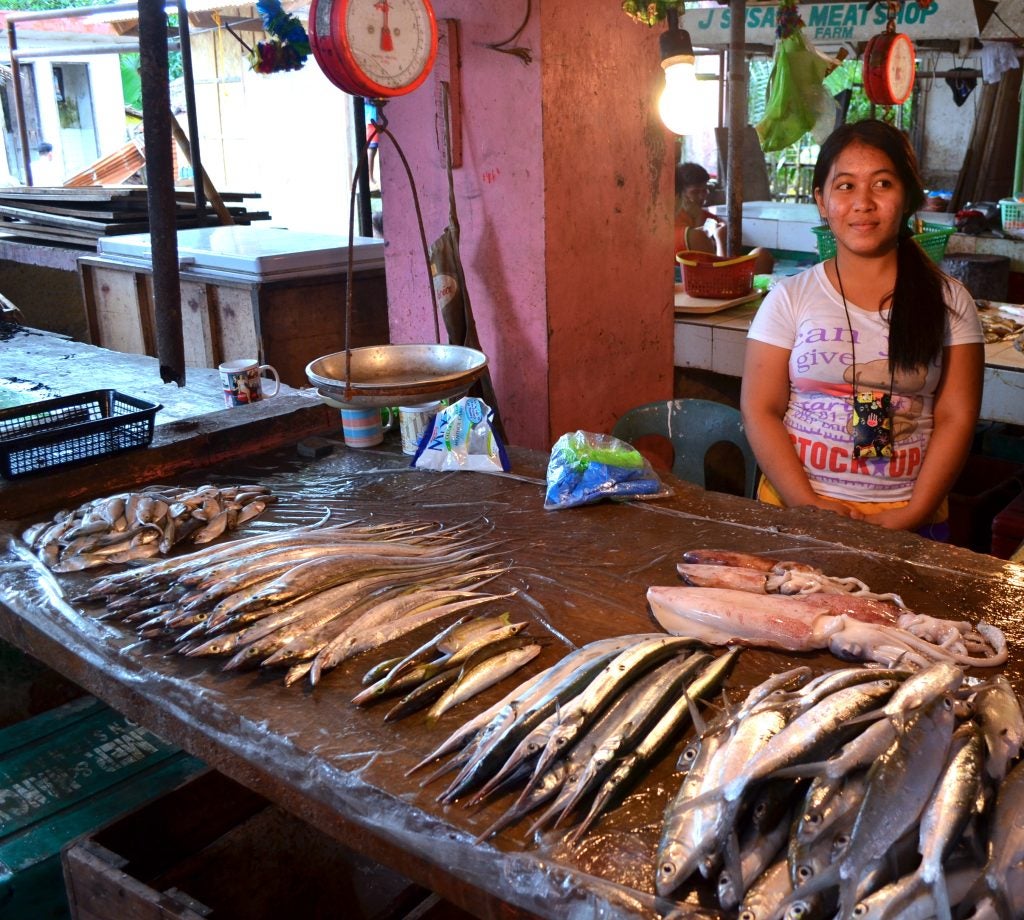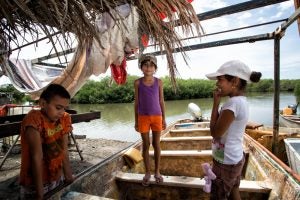Women fishers are vital to the livelihoods, food security, health and culture of billions worldwide
By Karly Kelso, Director of Climate Resilient Food Systems at EDF, and Michelle Tigchelaar, Research Scientist at Stanford Center for Ocean Solutions
Three billion people depend on our oceans, rivers and lakes for nutritious blue foods. By 2050, our global population is expected to reach 10 billion and global demand for blue foods is expected to roughly double. Blue foods, including fish, shellfish and seaweeds, provide vital nutrients like protein, zinc, vitamin A and omega-3 fatty acids — nutrients important for all sexes and ages but especially for young children and pregnant and breastfeeding women. We must ensure that blue food systems are environmentally sustainable in a changing climate, that they can continue to nourish our global population, and that they contribute to thriving coastal communities and gender equality.
As we celebrate International Women’s Day, it’s important to recognize the immense importance of the contributions of women in coastal and fishing communities around the world, and it’s necessary to take steps to improve gender equity and empower women to lead in the blue economy.
2021: A banner year for blue foods
2021 elevated the importance of blue foods in global food system dialogues and ensured these foods got the attention they deserve. The first five Blue Food Assessment papers, which were published in various Nature journals, provided irrefutable evidence of the importance of blue foods. This body of work included deep dives into the nutritional contributions, environmental performance and climate risk of blue food systems, and it highlighted the importance of mobilizing stakeholders at the first United Nations Food Systems Summit, or UNFSS 2021. Convened by the United Nations Secretary-General, UNFSS 2021 sought to identify game-changing actions and solutions that can transform global food systems and help progress towards achieving the 17 Sustainable Development Goals.
The recognition of blue foods in a global venue is a seismic shift in global food systems dialogues…
2022: Ensuring gender equity in blue food systems
While this past year yielded significant progress, there is more work to do. Now, in 2022, it is time for action that will ensure that blue foods and gender equality are at the heart of food policy decision-making. We must continue to emphasize the importance of blue foods in global dialogues, and to do so, we must acknowledge the critical role of women in the blue economy.
Women are essential in blue food supply chains and local food systems.
To make blue food systems truly equitable, policies and business practice will need to account for the fact that women often face special circumstances and higher risks than their male counterparts. For example, there is a higher prevalence of HIV infection in women than men in fishing communities in developing countries around the world, often from women trading sex for access to fish or access to sell their catch in the market. In addition, during the COVID-19 pandemic, partners on the ground working directly with fishing communities shared that men were eligible to access certain social safety nets and government support, but women in the sector were not, further highlighting the consistent gender inequality in the blue economy.
What’s next?
With the International Year of Artisanal Fisheries and Aquaculture underway, we have an important opportunity to spotlight blue food systems and the critical role women play in them. Drawing on recent advances in gender transformative approaches in coastal communities and forthcoming Blue Food Assessment research that will help to illuminate some of these issues, including justice and transformation in blue value chains, EDF will work with partners to support and empower women in fisheries globally through the following pathways:
- Collect data and elevate examples in the field that uncover how women contribute to the success of local food systems, small-scale fisheries, communities and home
- In partnership with the Small-Scale Fisheries Hub, host webinar series to exchange stories, best practices and actions that will build awareness of issues facing women and gender transformation in small-scale fisheries
- Support women through training and skill-building in our partner communities, with a special emphasis on financial literacy training that can help support improved livelihoods and local economies in fishing communities.
- Ensure women in the blue economy are represented and highlighted in key global policies and initiatives, such as the Committee on World Food Security’s Voluntary Guidelines on Gender Equality and Women’s and Girls’ Empowerment in the Context of Food Security and Nutrition and the Blue/Aquatic Foods Action Coalition.
On International Women’s Day we look to build upon the great progress of 2021 and continue creating a future where sustainable, resilient and equitable blue food systems are central to nourishing our growing global population.














